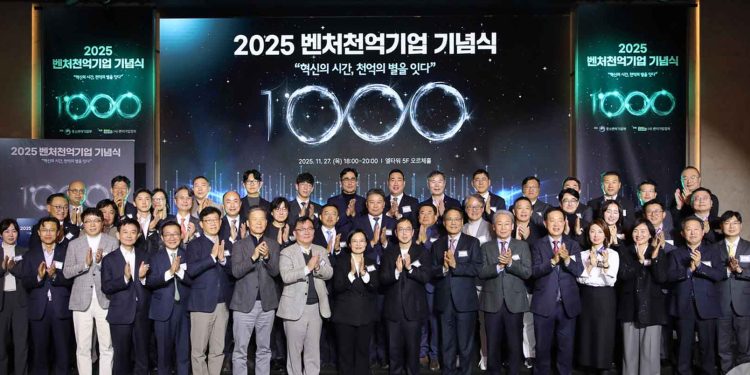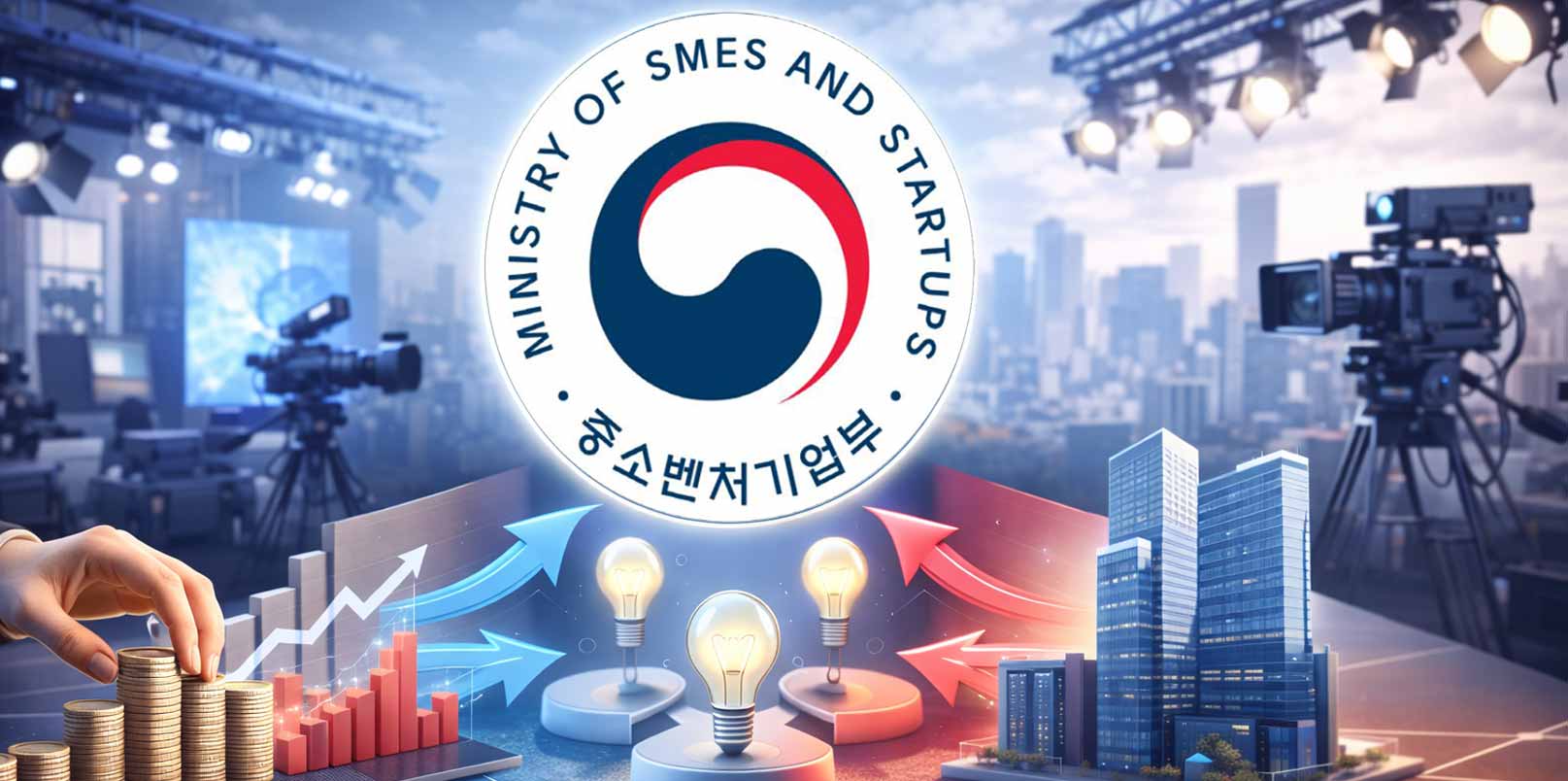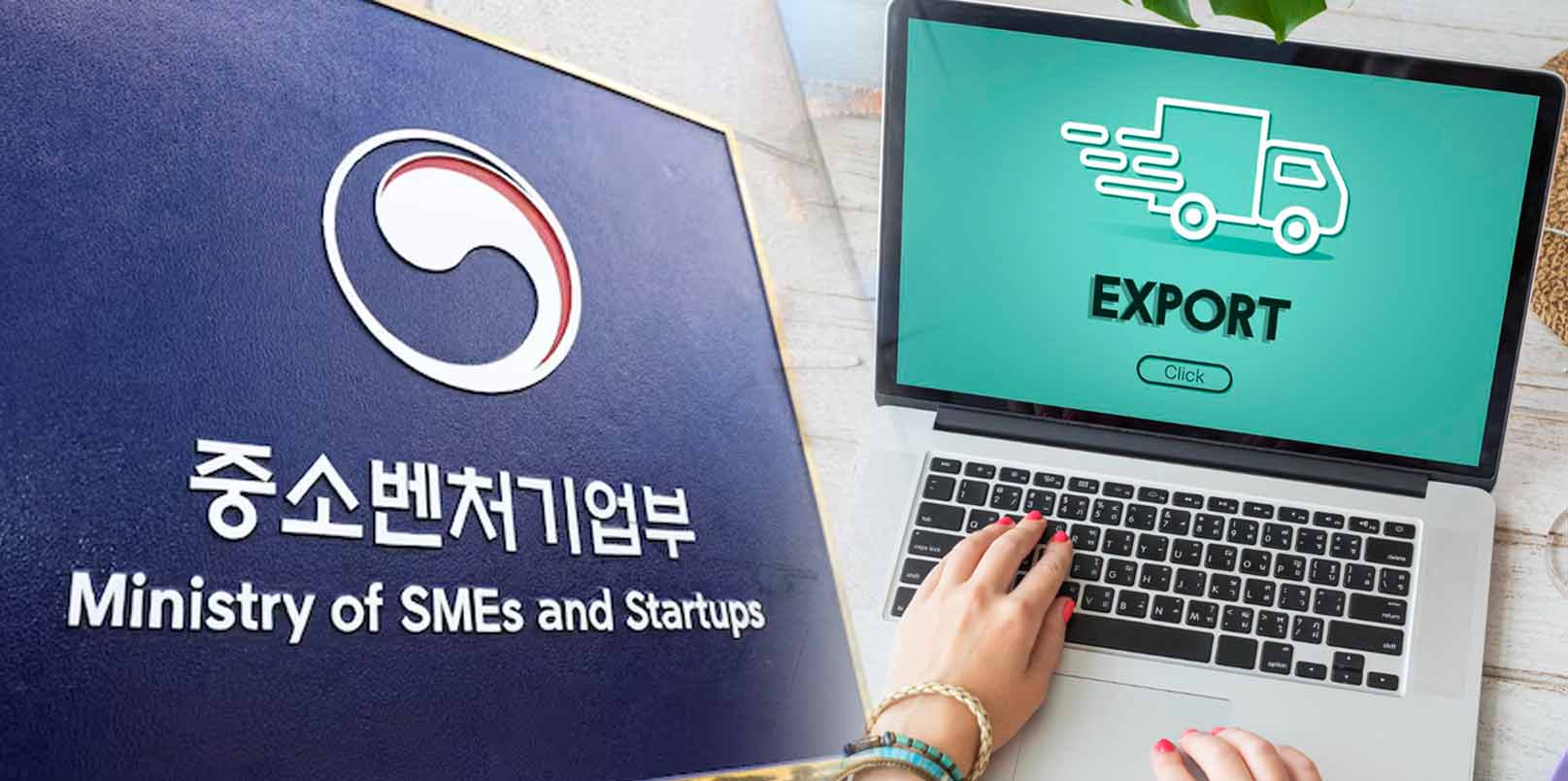Korea’s venture ecosystem is entering a new stage of maturity. Beyond creating startups, the national focus is shifting toward helping companies scale into global enterprises. The milestone celebration of the Venture 1 Trillion Won Companies reflects this evolution—where innovation, employment, and global competitiveness now define the new scale-up era.
Korea’s Venture Sector Surpasses 985 High-Growth Firms
At the 2025 Venture 1 Trillion Won Company Commemoration Ceremony held on November 27 in Seoul, Minister Han Seong-sook of the Ministry of SMEs and Startups (MSS) announced that 985 Korean venture companies have now surpassed 1 trillion won (approx. USD 750 million) in annual revenue.
The event, co-hosted with the Korea Venture Business Association (KOVA), brought together over 150 participants, including major startup leaders, new inductees, and key policy stakeholders.
Since its introduction in 2005, the Venture 1 Trillion Won Company initiative has become a benchmark of sustainable growth. It has recognized companies that evolved from early-stage ventures into large-scale global players—among them Naver, Kakao, Nexon, NCSoft, Celltrion, Krafton, and unicorns like Toss, Kurly, Bucketplace, Megazone, and Musinsa.
According to the latest data, these 985 firms collectively employ 356,000 people, exceeding the total employment of Samsung Group (285,000). Their combined revenue reached 258 trillion won, positioning them as the third-largest business bloc in Korea, behind Samsung and Hyundai Motor Group. Notably, 77.2% of these firms are already active in international markets.
Scaling Beyond the Startup Threshold
Korea’s early venture policies were designed to stimulate startup creation through capital support, incubators, and global accelerator programs such as the Tech Incubator Program for Startups (TIPS) and K-Startup Grand Challenge.
The latest shift—now visibly embodied in the Venture 1 Trillion Won Company milestone—marks a policy evolution: moving from startup formation toward scale-up acceleration.
Minister Han Seong-sook described this shift as an essential transformation in the structure of the Korean innovation economy.
“These companies are beyond just numbers. Their growth demonstrates Korea’s ability to evolve from a startup-driven nation into a true innovation powerhouse.”
The government’s current focus emphasizes strengthening the scale-up environment: improving investment conditions, expanding global partnerships, and enhancing regulatory frameworks to help successful ventures transition into multinational enterprises.
In policy terms, this marks the official entry into Korea’s Scale-Up Era. The Ministry of SMEs and Startups is already overhauling major programs such as Scale-up TIPS, designed to support growth-stage ventures that have outgrown early incubation. At the same time, national strategies in AI transformation and regional deep-tech development are being realigned to support scaling rather than seed creation.
This shift also answers long-standing criticism that previous startup policies focused too heavily on early-stage creation, leaving many ventures stranded in the so-called Death Valley.
Industry observers argue that the next generation of Korean startups must be built “global-first,” not merely “local giants,” to sustain competitiveness in the world economy. The government’s scale-up push reflects that recognition—moving beyond quantity toward global readiness and long-term resilience.
Korea’s Commitment to Sustainable Growth
Minister Han Seong-sook emphasized that the role of government now lies in enabling scale, not just survival.
“The Venture 1 Trillion Won Companies embody potential that goes beyond figures. The government will continue supporting and cheering your innovation until Korea’s ventures become global enterprises.”
She also called on new entrants to uphold three key values:
- Relentless innovation and challenge.
- Cooperative networks for the next generation of founders.
- Strong organizational cultures that attract top global talent.
Song Byung-jun, Chairman of KOVA, highlighted the symbolic importance of these firms in Korea’s industrial evolution.
“Each of these companies represents resilience and perseverance. They provide a foundation for youth to dream and a roadmap for Korea’s economic future.”
He added that despite the economic headwinds—high interest rates, inflation, and global uncertainty—KOVA will continue strengthening its Venture 1 Trillion Club Supporters network to sustain growth momentum.
Korea’s Transition into a Scale-Up Economy
This milestone is not just a recognition of business achievement—it reflects a fundamental transition in Korea’s venture landscape.
The rise of 1 Trillion Won Companies demonstrates how sustained government policy, private capital, and founder resilience have converged to push startups into global competitiveness.
Companies like Iconix, the studio behind Pororo and Tayo, exemplify how Korean ventures are diversifying through intellectual property and cross-industry expansion, from animation to publishing and theme parks. Similarly, Hancom’s transformation from a software provider into an AI-driven company underscores how established ventures are repositioning for the next phase of the digital economy.
Minister Han’s “scale-up agenda” aligns with the government’s Third Venture Boom initiative, aimed at fostering a balanced environment between innovation and investment maturity.
This includes regulatory reforms, global market access programs, and long-term funding mechanisms that allow ventures to expand internationally without losing ownership control or competitiveness.
Toward a Global Venture Nation
Korea’s recognition of 985 high-growth venture firms signals more than numerical success—it represents a broader policy vision to anchor innovation-driven growth within the global economy.
By shifting focus from startup creation to scale-up acceleration, the government is redefining how Korea nurtures its next generation of global enterprises.
As Minister Han Seong-sook concluded,
“We will keep creating an environment where venture firms can scale through investment, talent, and regulation. The government will stay by your side until these companies stand as Korea’s national innovation brands.”
The coming decade will test how effectively Korea can translate its startup potential into global leadership. But one thing is clear, the scale-up era has begun.
🤝 Looking to connect with verified Korean companies building globally?
Explore curated company profiles and request direct introductions through beSUCCESS Connect.
– Stay Ahead in Korea’s Startup Scene –
Get real-time insights, funding updates, and policy shifts shaping Korea’s innovation ecosystem.
➡️ Follow KoreaTechDesk on LinkedIn, X (Twitter), Threads, Bluesky, Telegram, Facebook, and WhatsApp Channel.






